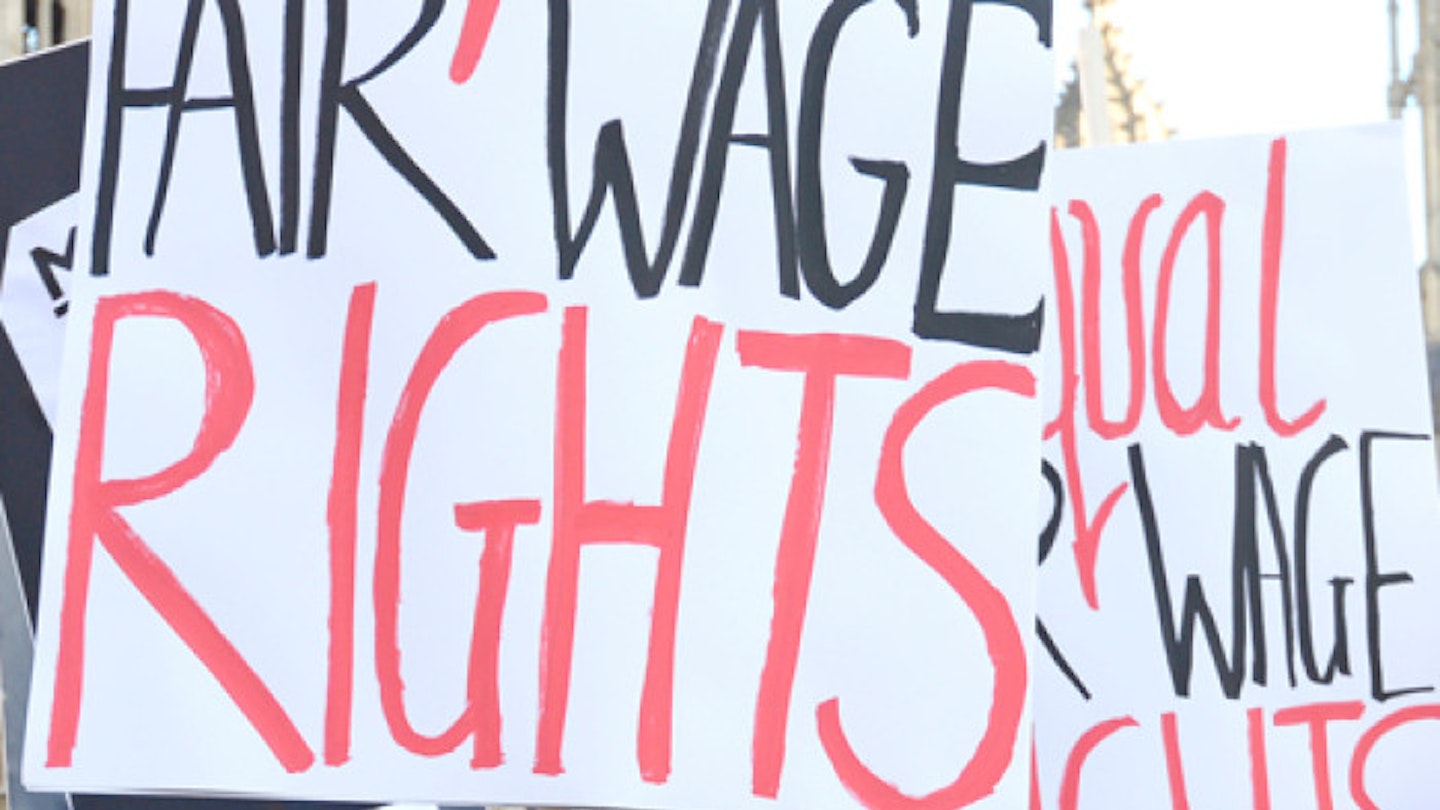Thanks to you, this year Grazia helped change the law to force large companies to reveal their pay discrepancies. Despite the fact it's Equal Pay Day today, the gender pay gap still persists. Will it only be closed when we all start talking about what we earn, asks Kate Wills.
Are you paid enough? How much does your boss earn? Does that colleague on the same level as you earn more or less than you do? For decades, what we earn has been something whispered about in the pub after work – if at all – but things are changing. Last month, a secret spreadsheet detailing the salaries of its employees circulated around Google HQ. According to Erica Baker, who created the document but now no longer works there, 5% of the company had filled in their salary details, causing upset among the firm’s bosses. According to Baker’s tweets, she was called in to see her manager who ‘wasn’t happy’ and nor were ‘higher up people’. The salaries appeared to imply gender inequality and enabled many employees to negotiate pay rises. So, could wage transparency be what’s needed to finally ensure equal pay?
Talking about our salaries is still a taboo. We’ll openly discuss our sex lives but, when it comes to our payslip, not many people are happy to share. Just 9% of Brits are comfortable talking about their earnings* and a US survey found that 43% of people in serious relationships don’t even know what their partner makes.**
So why are we so tight-lipped? ‘There’s a perception that we’re not allowed to talk about our salaries among colleagues and we’ll get into trouble if we do,’ says Jane Garrard, a director at Personal Career Management. ‘But there’s also embarrassment; we fear being judged.’
We might feel squeamish, but it’s not illegal to discuss your salary, in fact quite the opposite. ‘Under equality legislation, an employer cannot stop an employee from discussing details of what they earn if they are trying to establish whether they’re being paid less than their counterparts,’ says employment lawyer Jonathan Golden from Golden Leaver. ‘Even if you have a secrecy clause in your contract [still common in many firms], it’s not always enforceable. However, in reality there’s a culture of secrecy that allows employers to divide and rule. Bonuses are also often kept confidential because they’re discretionary.’
But it doesn’t have to be this way. Norway made all citizens’ salaries public in 2002 and this pay transparency has led to more equitable wages – now it is regularly near the top of surveys of countries with the smallest gender pay gap (the UK languishes in 48th place). In the US, small tech start-ups such as Buffer and Sumall are practising salary transparency. ‘We didn’t want office politics around [salaries],’ says Buffer’s chief operating officer Leo Widrich. ‘We try to be very focused that new people are aligned [with our culture] – people who want to focus on self- improvement and productivity.’ In the UK too, a few companies are now trialling transparency: Happy Computers has a spreadsheet on the company intranet that details what people earn. ‘This kind of culture forces employers to really focus on fairness,’ says Jane Garrard.
'It can cause huge discontent at work if people find they’re being paid less'
Grazia’s Mind The Pay Gap campaign resulted in David Cameron introducing mandatory pay audits earlier this year, meaning that companies with more than 250 employees will be required to publicly disclose information on the average pay of their male and female workers. However, this legislation won’t come into force until late 2016 at the earliest, and on average UK women are still paid 19.1% less than men.*** And it’s not just the gender pay gap we need to talk about – the University of Essex found that Britain’s white workers are paid more than ethnic minorities, and the hourly pay gap between these groups is getting bigger. In fact, it has more than doubled in the past 15 years. Campaigning for greater transparency of earnings could be the way to flush out this discrimination.
But we also need to be cautious about openness. Instead of spurring you on to work harder, finding out you get paid less could breed resentment. In a test case at Carnegie Mellon University in 2014, some workers were paid lower rates than another group as part of an experiment. When those people found out what the others were earning, they were more likely to cheat. ‘The decision for most employers is one of management philosophy: does compensation transparency promote improved workplace morale or is it divisive?’ says Jane Garrard.
‘It can cause a huge amount of discontent in a workforce if people find out they’re being paid less or that someone they don’t rate is being paid the same as them,’ says Jonathan Golden. ‘It’s highly confidential information and people have a right to privacy if they don’t want their salary blasted around the office.’
So what’s the best way go about starting a dialogue? ‘You are entitled to go to HR, or, in a small business, the boss, and request to look at anonymous pay data for the whole organisation,’ says Jane Garrard. ‘You can also gauge whether your pay is fair for your industry by looking at job adverts that match your skills and you can take that information into a meeting with your boss.’
We’re already so used to sharing information on social media, perhaps it won’t be long before talking about our salaries becomes as commonplace as posting what we ate for breakfast. While starting a spreadsheet might seem a radical way to go about it, and getting into a show-me-yours contest in the pub after work is far from the ideal, having more open conversations about our pay could be the first step to bridging the gaps.
